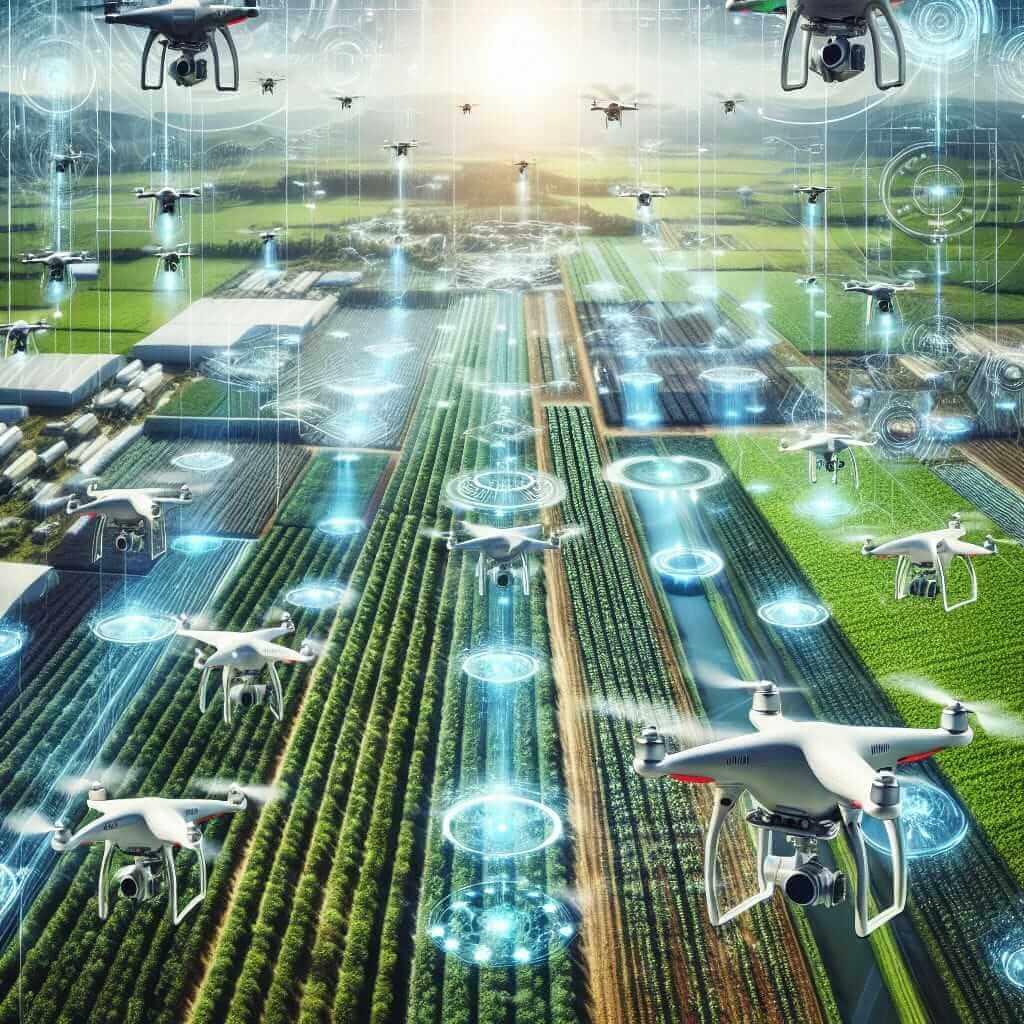In recent years, the role of technology in improving agricultural productivity has become a hotly debated topic, especially in the context of global food security and sustainable farming practices. This issue frequently appears in IELTS Writing Task 2 examinations, requiring candidates to discuss, evaluate, and provide solutions regarding technological advancements in agriculture. Commonly related inquiries include the benefits and challenges of agritech, examples of effective technologies in farming, and the overall impact on food supply chains.
Sample Task
Discuss the role of technology in improving agricultural productivity. To what extent do you agree or disagree?
Analyzing the Task
Understanding the Question
The given task requires you to provide your opinion on the role of technology in enhancing agricultural productivity. You need to discuss the various technological advancements in agriculture and evaluate how significantly they improve productivity. Words like “discuss,” “agree or disagree” indicate that you should present a balanced view followed by your stance.
Keywords and Related Terms
- Technology: Mechanization, precision agriculture, biotechnology, drones, AI, IoT
- Agricultural Productivity: Yield improvement, efficiency, crop management, sustainability, food security
- Benefits and Challenges: Environmental impact, cost, scalability, farmer adaptation
Sample Essay
Technological Advancements in Agriculture
Technological innovation has profoundly transformed agriculture, leading to notable improvements in productivity and sustainability. By employing mechanization, precision agriculture, and biotechnology, modern farming practices have reached unprecedented levels of efficiency and yield.
Positive Impacts of Technology on Agricultural Productivity
One of the most notable advancements is the use of precision agriculture. This approach utilizes GPS, IoT sensors, and data analytics to monitor crop health, soil quality, and weather conditions, ultimately enabling farmers to make more informed decisions. For instance, precision farming can minimize the overuse of water and fertilizers, ensuring that resources are used efficiently, which boosts overall productivity.
Similarly, drones have revolutionized crop monitoring and pest control. Equipped with advanced imaging technologies, drones provide real-time data on crop health and identify areas needing attention. This targeted approach allows for timely interventions, which significantly enhances yield and reduces crop losses.
Addressing the Challenges
While technological advancements offer numerous benefits, they also present certain challenges. The high initial investment and need for technical expertise can be barriers for small-scale farmers. However, government subsidies and training programs can mitigate these issues, making technology accessible to a broader range of farmers.
My Opinion
In conclusion, I firmly agree that technology plays a crucial role in improving agricultural productivity. The benefits of precision farming, drones, and other innovative tools are evident in the increased yields and efficiency. Although challenges exist, the overall positive impact of technology on agriculture underscores its importance in meeting global food demands sustainably.
Word Count: 260
Key Considerations When Writing on This Topic
When tackling an essay on the role of technology in improving agricultural productivity, consider the following:
- Clear Structure: Divide your essay into an introduction, body paragraphs, and a conclusion.
- Balanced Argument: Present both the advantages and challenges of technological innovations in agriculture.
- Specific Examples: Use real-world examples such as precision farming, drones, and IoT to illustrate your points.
- Strong Thesis Statement: Clearly state your position in the introduction and reinforce it in the conclusion.
Important Vocabulary Build-Up
- Precision Agriculture (noun) /ˈprɪʒən ˌæɡrɪˈkʌltʃər/: The use of advanced technological systems to monitor and manage farming processes.
- Biotechnology (noun) /ˌbaɪəʊtekˈnɒlədʒi/: Technology that utilizes biological systems or organisms to develop agricultural products.
- Yield Improvement (noun) /jiːld ɪmˈpruːvmənt/: The enhancement of crop production in terms of quantity and quality.
- Sustainability (noun) /səˌsteɪnəˈbɪləti/: The ability to maintain ecological balance by avoiding depletion of natural resources.
- Deployment (noun) /dɪˈplɔɪmənt/: The act of implementing and utilizing technology in practical applications.
Conclusion
The role of technology in improving agricultural productivity is a critical subject in IELTS Writing Task 2. By examining both the benefits and challenges of technological advancements, such as precision agriculture and drones, candidates can formulate a well-rounded and compelling essay. For further practice, consider these related topics:
- The impact of climate change on agriculture.
- How urban agriculture can enhance food security.
- The effects of rising sea levels on coastal farming regions.

By mastering the art of writing about such dynamic topics, candidates can significantly increase their IELTS Writing scores.